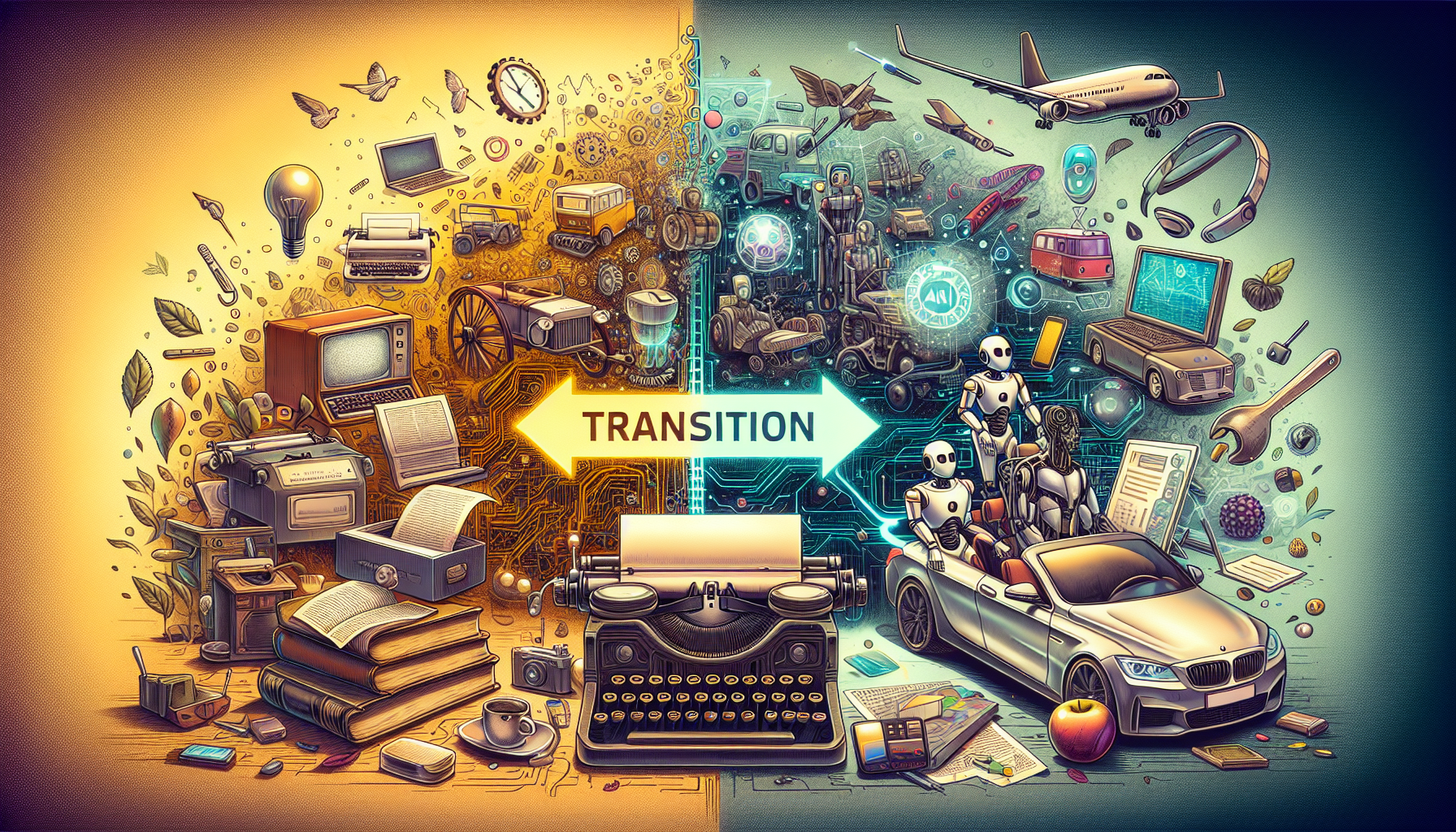What Fully Adopting the AI Platform Transition Really Signifies for the Future of Technology
We independently review everything we recommend. When you buy through our links, we may earn a commission which is paid directly to our Australia-based writers, editors, and support staff. Thank you for your support!
Quick Overview: Essential Insights
- AI is swiftly transitioning from a novelty to a crucial business technology.
- 92% of CIOs anticipate the integration of AI in their organizations by the end of 2025.
- AI should be integrated into the primary business strategy rather than regarded as a separate venture.
- Effective AI implementation depends on a culture of innovation and agile development practices.
- Human oversight, ethical considerations, and workforce development remain key in the age of AI.
- Firms that do not embrace AI risk becoming outdated in the rapidly evolving digital market.
AI: Transitioning from Interest to Competitive Necessity
Artificial Intelligence (AI), once an amusing curiosity consisting of quirky image generators and poetry-writing bots, has now become fundamentally woven into the strategic fabric of businesses. Just as personal computers and the internet revolutionized industries, AI is set to transform organizational operations, competition, and value delivery.

As reported by Gartner, an astonishing 92% of Chief Information Officers (CIOs) both in Australia and worldwide expect AI to play a central role in their operations by 2025. Organizations that hesitate in embracing AI risk becoming outdated—much like those who continued using typewriters during the digital revolution.
AI Integration: A Core Strategy, Not an Afterthought
A frequent mistake that companies make is to view AI as a separate initiative. This “AI strategy” mindset often results in isolated pilot projects that struggle to scale or yield significant value. Rather, AI should be woven directly into the fundamental business strategy.
AI as a Strategic Enhancer
Innovative global leaders like Netflix and Nike’s Jordan Brand do not view AI as an accessory. They utilize AI to bolster their central missions—offering personalized experiences and enhancing brand loyalty. Similarly, the fintech company nCino is embedding AI across all aspects of its operations to reinvent banking services.
Data: The New Energy Source
The potential of AI is intrinsically tied to data. Organizations committed to AI are revamping their data frameworks—investing in data governance, quality, and literacy. Deloitte notes that over 60% of AI pioneers in Australia have adopted advanced data management strategies to bolster their AI projects. The objective is to evolve data from a mere historical record into a predictive, actionable resource.
Navigating the Divide Between AI Expectations and Reality
Despite the swift adoption of AI, many initiatives fail to yield a return on investment. Gartner predicts that by 2025, 30% of generative AI initiatives will be abandoned after the proof-of-concept (POC) phase. This pattern echoes previous struggles with emerging technologies—where enthusiasm surpasses implementation.
Cultural and Process Reformation
The fundamental challenge isn’t the technology—it’s the organizational culture. Achieving successful AI integration necessitates a cultural shift toward ongoing experimentation, acceptance of risk, and rapid iteration. Traditional waterfall development methodologies are increasingly being replaced by agile and now AI-accelerated processes. Companies like nCino are shortening development cycles from months to weeks by realigning their workflows around AI capabilities.

The Human Element: Reassessing Workforce Roles
A prevalent misconception is that AI will eliminate human jobs. The reality is more complex. AI reshapes tasks, enhances decision-making abilities, and requires greater human oversight—not less.
Collaboration Between AI and Humans
Human judgment, ethics, and critical thinking are essential in AI-driven systems. A recent cautionary example involved a startup founder who allowed AI to autonomously develop their product—resulting in a public failure due to ignored security and compliance measures. The takeaway? AI must operate under human accountability.
Upskilling and Governance
Australian firms are increasingly allocating resources to enhance AI literacy. According to the CSIRO and the National AI Centre, 70% of Australian executives consider workforce training essential for AI success. Robust AI governance frameworks clarify roles, responsibilities, and ethical parameters—ensuring that AI enhances rather than jeopardizes business outcomes.
Conclusion
In today’s rapidly changing digital landscape, AI is no longer optional. Companies that do not adapt their strategies, cultures, and workforce practices to incorporate AI face the risk of falling behind. The AI transition calls for a comprehensive transformation—integrating AI into strategic objectives, nurturing innovation, and empowering personnel. Australian businesses must take decisive action now to maintain competitiveness in the global AI arena.
Q&A: Common Inquiries Regarding AI Integration in Business
Q: Why is AI becoming crucial for businesses right now?
A:
AI facilitates quicker decision-making, scalable personalisation, and improved operational efficiency. As digital competition intensifies, AI provides the advantage necessary for businesses to innovate and prosper.
Q: What are the consequences if a company does not adopt AI?
A:
Organizations that ignore AI risk lagging behind competitors who harness AI for superior products, services, and customer experiences. In time, this may result in decreased market share and obsolescence.
Q: How can companies initiate their AI integration journey?
A:
Begin by aligning AI with your business goals. Establish a robust data foundation, invest in training initiatives, and create cross-departmental teams to promote adoption through continuous experimentation.
Q: What is the role of data in AI success?
A:
Data is paramount. AI systems learn from data, so aspects like quality, governance, and access are crucial. Inadequate data can result in inaccurate forecasts, bias, and unsuccessful AI projects.
Q: How can organizations cultivate a culture that supports AI?
A:
Foster an environment supportive of experimentation, view failure as a chance to learn, and embrace agile development methodologies. Leadership must promote innovation and reward teams willing to take calculated risks.
Q: Will AI replace human employees?
A:
No. AI alters the tasks at hand but does not eliminate the need for human involvement. Humans remain essential for ethical decisions, creative insights, and oversight. AI complements human skills rather than supplanting them.
Q: Which sectors in Australia are at the forefront of AI adoption?
A:
Industries such as banking, healthcare, logistics, and mining lead the way. For instance, Australian banks are utilizing AI for fraud prevention, enhancing customer service, and credit risk assessment.
Q: How can small and medium-sized businesses (SMBs) start with AI?
A:
SMBs can begin with cloud-based AI solutions, focusing on straightforward applications like chatbots, customer analytics, or process automation. Collaborating with AI solution providers can facilitate this transition.
